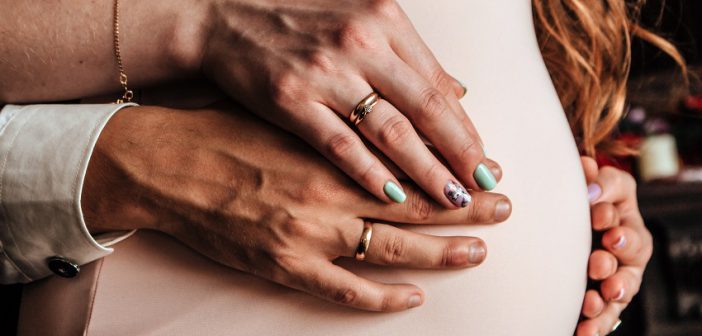As moms, we go through so many changes with our bodies during and after pregnancy. From the stretched skin and hormonal shifts to the toll that labor takes, it’s a lot to handle.
However, one issue that often gets brushed under the rug is incontinence after childbirth. Whether you leaked a little during those final weeks of pregnancy or found yourself having accidents postpartum, it’s something that affects many new moms, but no one wants to talk about.
I know this struggle all too well from my own experience. After delivering 13 pounds of twins, I was left constantly embarrassed and frustrated by unexpected leaks. Whether I was out running errands, playing with my kids, or just relaxing at home, I could never let my guard down without risking an accident. I searched for an effective, easy solution to manage my incontinence, but came up empty-handed.
It’s time we start having open and honest conversations about incontinence as moms. It’s an incredibly common issue faced by one-third of women after the age of 30, and we shouldn’t be ashamed about it. Just think about the trauma our bodies go through during vaginal delivery alone!
Breaking the silence
Being a mom is hard enough without having to deal with the added stress and embarrassment of bladder leaks. New moms especially have so much to figure out that they don’t have time to take care of themselves, much less talk about it. Unfortunately, the issue usually gets worse if nothing is done about it.
As one mom recently shared, “Every pregnancy, my pelvic floor gets weaker. I know this, and I just deal with the almost-peeing-my-pants way too often because I don’t have time.” That constant worry and anxiety over when the next leak might happen is an unfair burden no mother should have to bear.
Another mom experienced leaking so severely after her third child that she couldn’t even run, jump, cough, or sneeze without an accident. She tried surgical options like a bladder lift, but the relief was only temporary. It wasn’t until over a decade later that she finally found an effective solution.
The silence and stigma around postpartum incontinence need to end. We shouldn’t be ashamed to talk about something so biologically normal after going through the intense experience of childbirth. The more we have these open conversations, the more awareness we can raise, and the easier it will be for moms to seek out help and find solutions that work for their bodies.
Understanding incontinence
To fully grasp why incontinence is so prevalent among mothers, we need to look at the mechanics behind what’s happening in our bodies. The pelvic floor is a group of muscles that support the uterus, bladder, and bowel.
During pregnancy, as the baby grows, it puts increasing pressure and weight on the pelvic floor, causing it to stretch and weaken over time. Then comes vaginal delivery, where those pelvic floor muscles endure severe trauma as they have to stretch tremendously to allow for the passage of the baby. If there is any tearing or episiotomy, recovery can take much longer.
With those muscles now in a compromised, weakened state postpartum, it becomes difficult for them to provide the support needed to control the bladder. Simple movements like coughing, sneezing, or even laughing can put downward pressure on the bladder, causing urine leakage when those pelvic muscles aren’t strong enough to act as a valve.
As one mother of four explained after experiencing multiple vaginal births, “I was searching for a device that could prevent me from becoming incontinent as a middle-aged person.” She understood that her pelvic floor had taken a beating and wanted to be proactive about regaining strength and control.
The science is clear — keeping those pelvic floor muscles toned is critical for preventing or managing incontinence after childbirth. While Kegel exercises can help, many moms find they need more support from external solutions as well.
Break your silence on incontinence
There is simply too much at stake for any mom to continue to do nothing and suffer in shame and silence. They have options from pelvic floor therapy and muscle exercises to innovative new external helpers to regain strength and control.
External pelvic toning solutions are particularly game-changing for busy moms. These discreet, wearable treatments use gentle stimulation to directly tone weakened muscles while you go about your daily life. Many are also covered by insurance and FSA/HSA funds, which makes them affordable.
Convenience and discretion aside, the biggest benefit is finally being able to reclaim your life without fear of leakage. No more avoiding jumping, running, laughing, or coughing — just strength, confidence, and being present for all those precious mom moments.
Don’t resign yourself to dirty pads and isolation. Break your silence on incontinence, explore all the solutions modern science has to offer, and take back control of your body and life as a mom. You’ve got this!
– Gloria Kolb is the CEO and co-founder of Elitone®️, an FDA-cleared, non-invasive wearable treatment for women with urinary incontinence. As an inventor with 30 patents, Gloria’s accolades include Best New Product of 2019 by My Face My Body awards, Sling Shot 2020, and Consumer Electronics Show’s Innovation Award for 2024. Gloria has also been featured in Forbes as a Top Scientist Driving Innovation in Women’s Health. Her creative designs and problem-solving abilities have earned her recognition, such as Boston’s “40 Under 40” Award and MIT Review’s “World’s Top Innovators under 35”. With Mechanical Engineering degrees from MIT and Stanford and an Entrepreneurship MBA from Babson College, Gloria’s expertise extends to consulting, where she evaluates technology and clinical markets for various inventions and startups.




